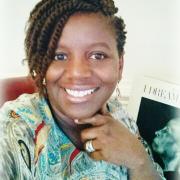#BlackHistory365: Dismantling the Stereotypes and Ensuring My Kids Know They Matter Too
When my son was 4 or 5 years old, I noticed some things in him that surprised and concerned me. He started saying things about himself that he wanted to change – like his skin color or his nose. He noticed he didn’t look like any of his teachers or his classmates, his new friends. And he wasn’t always treated like them either. Even at his young age, he noticed the difference.
For about two years my son attended an all-black, private, Christian pre-school. When he transitioned to a predominantly white public school for Kindergarten, things started to change.
He was underwhelmed by the curriculum and therefore, inattentive. He had come from a pre-school where the 4 year classes were writing and spelling 2nd and 3rd grade words. His inattentiveness, and overall adjustment to this different looking environment, was apparently a bit much for him and his teacher; she called me often during the day. She did not know what to “do” with him. Her complaints did not involve unruly behaviors or harming other kids (he actually leans towards introversion); he was just different.
Within 6 weeks, we’d had enough. We removed him from public school and placed him in the all-black private elementary school connected to his former pre-school. He was allowed to thrive; there were no more calls from a teacher. They looked just like him, understood him, and wanted the best for him.
My son is now 17. He attends a predominantly white public high school, takes all AP and Honors courses and is well-adjusted. Despite how the media portrays us, especially our sons, we are not all “thugs”.
That experience with his first public school teacher, coupled with the things he would say about himself and others who looked like him, alerted me to the fact I needed to become much more proactive in dismantling the media’s stereotypes about us. It’s no secret the media’s propensity is to portray races in ways, whether consciously or not, that fit the narrative they want us to accept about one another.
Even despite my initial efforts, I noticed after my second child came along, both kids would make negative statements about blacks (unconsciously about themselves) out of a subconscious conditioning from what they were hearing from other sources. Watching them instantly reminded me of the 1940s black and white doll study that was also recreated a few years ago. In both studies, the majority of both black and white kids spoke positively about the white doll and negatively about the black doll.
This study has always amazed and frustrated me. Now seeing my own kids being influenced in similar ways, it was not enough for me to be proud of my blackness. Nor was it enough that I was not influenced by other people’s issues. I needed to ensure my young kids, who hadn’t reached this freedom yet, would reach it one day. I became even more intentional about affirming them and others who looked just liked them.
My husband and I were already collectors of books featuring black authors or characters, black art, and black films. We became more purposeful in making sure our son and daughter knew more of the contributions of our people; the stories they would never hear in public schools or by mainstream media. We implemented black history moments during dinner times. We used black history picture postcards and books. We took turns reading the information and prior to the next day’s learning opportunity, we would discuss and review.
In addition, I consistently shared positive black news stories I purposely sought out. I strategically increased my black magazine subscriptions, specifically so my daughter could see images on a cover that looked like her. In all of this, we never excluded other types of books, magazines, or cultures.
Today both my kids are comfortable in their own skin – desiring to change nothing. My teenage daughter completely embraces and appreciates the flexibility of her natural hair. They are black and proud.
And being black and proud is not anti-white or anti-anything. If only people would understand that. When you live in a world that constantly uplifts one race over others, you have to find ways to celebrate yourself and your culture. We’ve never taught our kids to hate other people based on the color of their skin. We instead taught, and still teach, our kids to love themselves and not allow others to define who they are nor tell them what is acceptable and beautiful.



The views and opinions expressed in this post are those of the author(s) and do not necessarily reflect those of MomsRising.org.
MomsRising.org strongly encourages our readers to post comments in response to blog posts. We value diversity of opinions and perspectives. Our goals for this space are to be educational, thought-provoking, and respectful. So we actively moderate comments and we reserve the right to edit or remove comments that undermine these goals. Thanks!